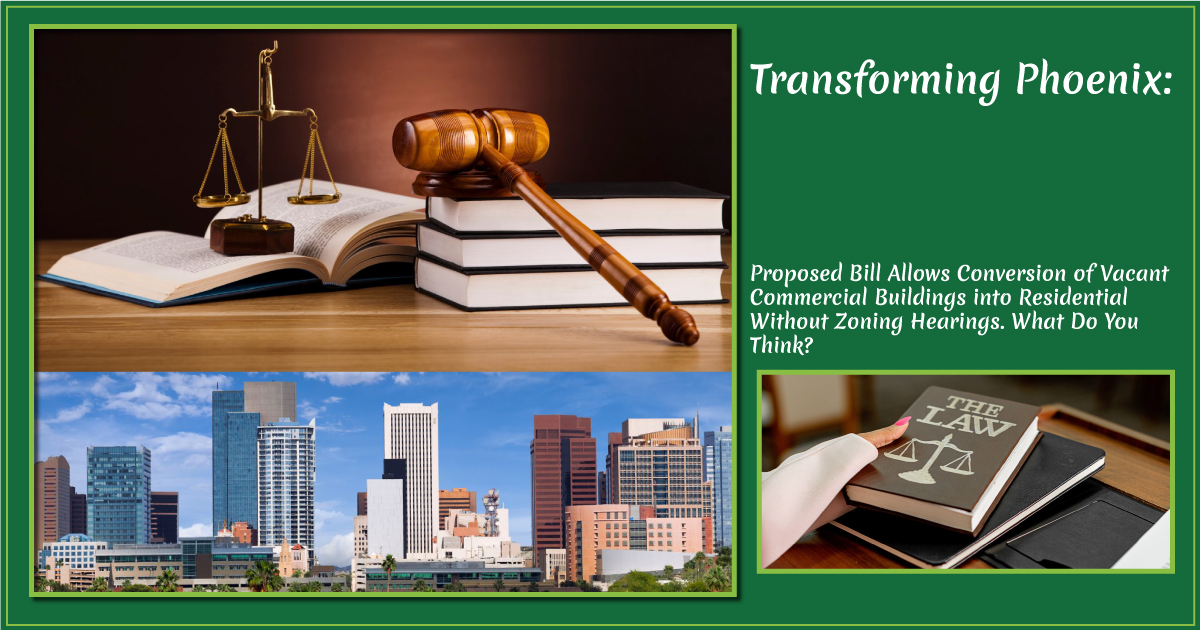Transforming Phoenix: Proposed Bill Allows Conversion of Vacant Commercial Buildings into Residential Without Zoning Hearings. What Do You Think?

Hello, Arizona! The termination of zoning hearings is a groundbreaking move that’s set to transform metro Phoenix’s skyline and solve some pressing urban dilemmas. Strap in as we delve into the innovative housing bill signed into law by Governor Katie Hobbs, promising to reshape our urban landscape for the better.
House Bill 2297 is not just another piece of legislation; it’s a game-changer for Phoenix’s housing shortages and the plethora of vacant commercial spaces dotting our city. This savvy new law allows developers to convert or even demolish a chunk of commercial, office, or mixed-use buildings into shiny new residential spaces—without the headache of rezoning. This means cutting through the red tape and shaving months off the development process.
Starting in 2025, any Arizona city with a population north of 150,000 will need to let up to 10% of their dated commercial real estate to be reborn as housing. What’s even better? About 10% of these new digs will be earmarked for moderate or low-income residents, making living in Phoenix more accessible for everyone.
Here’s the kicker: Developers diving into this program won’t have to wade through the usual swamp of conditional use permits or rezoning applications. No public hearings? No problem. This streamlines the whole process, making it a magnet for investors and developers itching to bring more apartments, townhomes, and condos to our bustling area.
House Majority Leader Rep., Leo Biasiucci, the bill’s champion, believes this legislation isn’t just a change—it’s a revolution for Arizona’s urban development. “I think it’s going to be something that really changes Arizona for the better,” he declared with confidence.
But let’s pump the brakes for a second—transforming office blocks into homes isn’t without its hurdles. The task is complex and can be pricey. And while the potential is there, real estate gurus like Jason Morris, a seasoned land and zoning attorney, preached expectations with a dose of reality. “I don’t think we’re going to wake up tomorrow and find that all of a sudden there are a lot more housing opportunities at these buildings,” he noted, tempering enthusiasm with pragmatism.
Despite this, the move could redefine underused spaces across Phoenix—from ghostly big box stores to deserted strip malls, suggesting a rebirth that could energize neglected parts of the city.
Not everyone is sold on skipping public hearings because they serve as vital forums for community input and in fine-tuning development plans. Ben Graff, another land use expert, supports the bill but voices a note of caution about bypassing these discussions, which help ensure new developments gel with their neighborhoods.
As we look to the future, the success of this bold initiative will rely on market forces and city adaptations. With housing being a hot topic in this year’s legislative agenda, Phoenix is poised at the edge of transformative urban renewals.
So, Phoenix, what do you think? Are we ready to watch our city evolve, building by building? What is your opinion about the negation of zoning hearings? Stay tuned and engaged—this urban adventure is just beginning!



